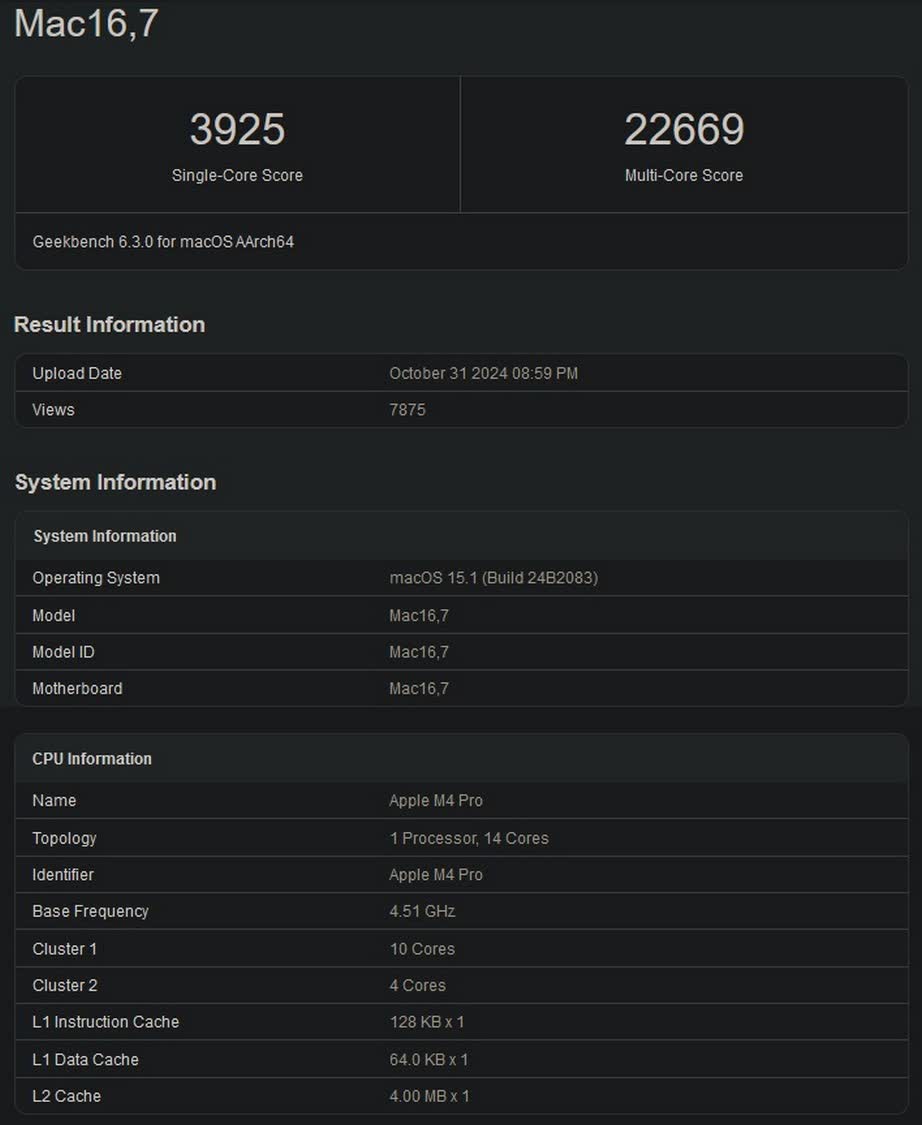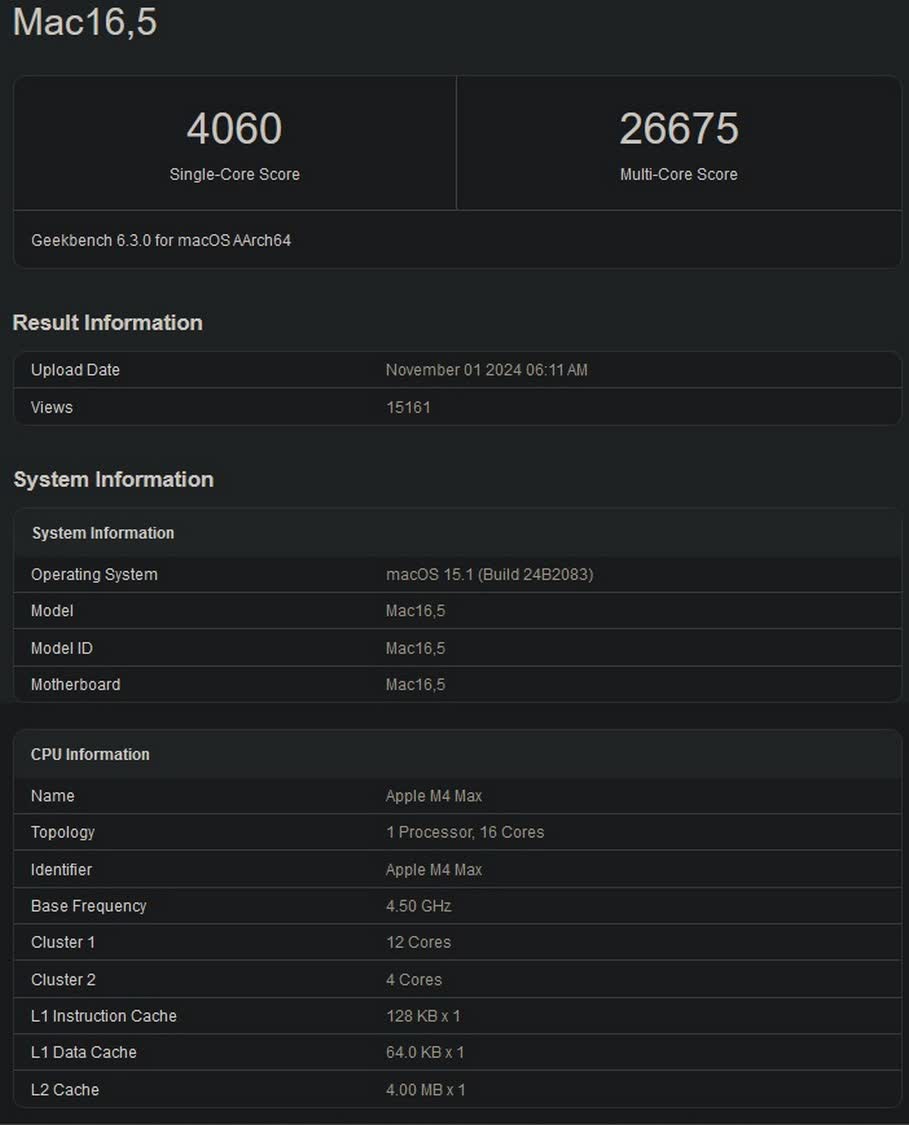Something to look forward to: Apple just launched new MacBook Pro laptops powered by the M4 Pro and M4 Max chips, and initial reports suggest that the new SoCs not only beat their predecessors by a healthy margin, but are also faster than flagship desktop-grade CPUs from Intel and AMD.
Apple released a spate of new Mac models powered by the M4 chips last month. They include the upgraded iMac, the redesigned Mac Mini, and the all-new MacBook Pro models with Thunderbolt 5. While the M4 Pro features a 14-core CPU and 20-core GPU, the M4 Max comes with a 16-core CPU and a 40-core GPU.
The company had earlier launched the 7th-generation iPad Pro with the vanilla M4 chip that has a 10-core CPU and 10-core GPU.
In Geekbench 6, the M4 Pro scored 3,925 points in the single-core benchmark, which is higher than the 3,450 points notched up by the Intel Core Ultra 9 285K and 3,359 points managed by the AMD Ryzen 9 9950X. This is even more impressive when you consider that the M4 Pro is clocked at 4.5GHz, while the Intel and AMD chips have boost clocks of up to 5.7GHz.
In the multi-core benchmark, the M4 Pro scored 22,669 points, which is slightly lower than the 23,024 points racked up by the 285K. However, it is still significantly higher than the 20,183 points scored by the 9950X. It is worth noting here that the M4 Pro has only 14 cores, while the Core Ultra 9 285K features 24 cores. The Ryzen 9 9950X has 16 cores and 32 threads.
Although the M4 Pro's scores are impressive, the M4 Max is even faster. The chip notched up 4,060 points in the single-core test and a whopping 26,675 in the multi-core benchmark, both of which are significantly higher than the scores put up by the 285K and 9950X.
While preliminary scores for the M4 Pro and M4 Max look impressive, it is worth remembering that Geekbench 6 is only a synthetic benchmark and does not necessarily reveal a processor's true performance potential. We will likely have to see how the M4 twins perform in applications like Cinebench or Handbrake to gauge their real-world performance.


